
Experiencing the Shinkansen in Japan: Booking and Boarding Tips
The Shinkansen, or bullet train, is one of Japan’s most iconic transportation systems, offering a fast, efficient, and comfortable way to travel across the country. Known for its punctuality, sleek design, and incredible speeds, the Shinkansen is a favorite among both locals and tourists. Whether you’re traveling from Tokyo to Kyoto or venturing further to Hiroshima or Hokkaido, experiencing the Shinkansen is a must-do for any trip to Japan.
This guide covers everything you need to know about booking and boarding the Shinkansen, ensuring a smooth and enjoyable journey on Japan’s high-speed rail network.
Contents
1. Understanding the Shinkansen
2. Booking Your Shinkansen Ticket
1. Understanding the Shinkansen
The Shinkansen is Japan’s high-speed train network, operated by Japan Railways (JR). It connects major cities and regions, offering an efficient and comfortable alternative to flying or driving. The Shinkansen is divided into several lines, each serving specific routes:
Main Shinkansen Lines
- Tokaido Shinkansen: Connects Tokyo, Nagoya, Kyoto, and Osaka, making it one of the busiest lines.
- Sanyo Shinkansen: Extends from Osaka to Hiroshima and Hakata (Fukuoka).
- Tohoku Shinkansen: Travels north from Tokyo to Aomori, passing through Sendai and Morioka.
- Hokkaido Shinkansen: Connects Aomori to Hokkaido, reaching as far as Hakodate.
- Kyushu Shinkansen: Operates within Kyushu, connecting Hakata to Kagoshima.
Shinkansen trains come in several types, such as the Nozomi, Hikari, and Kodama on the Tokaido line. The Nozomi is the fastest but is not covered by the Japan Rail Pass, while the Hikari and Kodama are slower but accessible for pass holders.
2. Booking Your Shinkansen Ticket
Booking your Shinkansen ticket can be done through various methods, depending on your preferences and travel plans:
Using the Japan Rail Pass
The Japan Rail Pass is a cost-effective option for tourists planning to travel extensively on JR lines. It offers unlimited rides on eligible Shinkansen trains and can be used for reserved and non-reserved seats. To book a seat, visit any JR ticket counter or use ticket machines with your activated Rail Pass. Note that the Nozomi and Mizuho trains are excluded from the pass.
Purchasing Tickets at a JR Ticket Office
Tickets can be purchased at JR ticket offices, also known as "Midori no Madoguchi." Staff at these offices can assist you with selecting the best train and seat options. Be prepared with your travel dates, departure and arrival stations, and preferred seating type (reserved or non-reserved).
Online Booking
JR offers online booking services for Shinkansen tickets through platforms like JR Pass and JR East Train Reservation. These platforms allow you to check availability, book seats, and pay in advance. Some services even offer mobile tickets, eliminating the need for paper tickets.
Using Ticket Machines
Self-service ticket machines are available at major JR stations and support multiple languages. These machines are convenient for last-minute bookings and offer options for both reserved and non-reserved seats. Simply follow the on-screen instructions to select your route, time, and seat preference.
3. Boarding the Shinkansen
Boarding the Shinkansen is a straightforward process, but following these steps ensures a smooth experience:
Locate the Correct Platform
Shinkansen platforms are usually separate from regular train platforms and are clearly marked. Look for signs indicating "Shinkansen" or your specific line, such as "Tokaido Shinkansen." Verify your train number and departure time on electronic boards.
Arrive Early
Arrive at least 15-20 minutes before departure to locate your platform, validate your ticket (if using a Rail Pass or paper ticket), and find your boarding area. Trains are punctual and wait only briefly at each station.
Boarding Zones
Platforms have designated boarding zones for each car. Your ticket will indicate your car number and seat assignment. Stand in the corresponding line and wait for the train to arrive. Non-reserved cars are usually marked, so check signs if you don’t have a reserved seat.
Onboard Etiquette
Once onboard, store your luggage in the overhead racks or designated areas at the end of the car. Keep noise levels low and use headphones for electronic devices. If you’re traveling with food, dispose of waste properly in the bins provided.
4. Luggage Rules and Tips
Traveling with luggage on the Shinkansen is convenient, but there are a few guidelines to keep in mind:
Luggage Size Limits
Luggage should not exceed 160 cm (combined height, width, and depth). Larger items require advance reservations for oversized luggage spaces, available in certain cars.
Overhead and Storage Areas
Smaller bags and backpacks can be stored in overhead racks, while larger suitcases can be placed in designated areas at the ends of each car. Make sure your luggage is secure and labeled with your contact information.
Travel Light
Consider shipping larger items via Japan’s efficient luggage delivery services, such as Takkyubin, to minimize stress during your journey.
5. Enjoying the Shinkansen Experience
Traveling by Shinkansen is not just about getting from point A to point B—it’s a cultural and scenic experience:
Ekiben (Train Station Bento)
Pick up an ekiben, a special bento box sold at train stations, before boarding. These beautifully packaged meals feature local specialties and are a highlight of Shinkansen travel.
Scenic Views
Enjoy panoramic views of Japan’s countryside, mountains, and cities through large train windows. For travelers on the Tokaido Shinkansen, try to book a seat on the right side (towards Osaka) for a glimpse of Mount Fuji.
Comfort and Convenience
The Shinkansen offers spacious seating, clean restrooms, and trolley service for snacks and drinks. Use this time to relax, read, or plan the next leg of your journey.
6. Conclusion: Traveling the Shinkansen Like a Pro
The Shinkansen is more than just a transportation option—it’s an iconic part of Japanese culture and a highlight of any trip to Japan. By understanding the booking process, preparing for boarding, and following luggage guidelines, you can enjoy a smooth and memorable experience. Whether you’re traveling for leisure or business, the Shinkansen offers a convenient, comfortable, and scenic way to explore Japan’s incredible destinations.
공유하다
You may also like
-

일본의 러브호텔 지구 방문: 무엇을 기대해야 할까
일본의 러브호텔 지구는 프라이버시, 창의성, 그리고 약간의 사치스러움이 독특하고 매력적으로 혼합된 것으로 유명합니다. 원래는 커플에게 사적인 휴양지를 제공하기 위해 설계되었지만, 러브호텔은 일본 문화와 환대의 ...
-

도쿄 24시간 카페의 늦은 밤 식사 장소 10곳
도쿄의 활기찬 나이트라이프는 바와 나이트클럽을 넘어, 언제든지 음식 애호가들을 만족시키는 번창하는 심야 식사 문화로 확장됩니다. 이 도시의 24시간 카페는 지역 주민과 휴식, 재충전, 식사를 즐길 장소를 찾는...
-
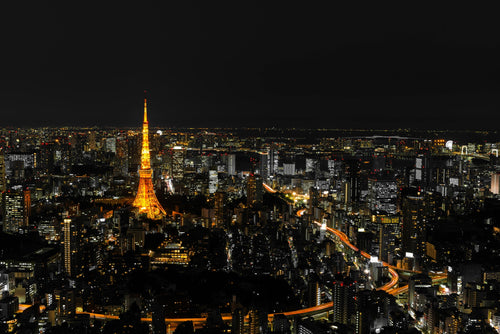
도쿄에서 어둠 이후 모험을 위한 최고의 야간 투어
도쿄의 나이트라이프는 에너지, 활력, 전통과 현대의 독특한 혼합으로 유명합니다. 조명이 켜진 사원에서 네온 불빛이 비추는 도시 풍경과 숨겨진 문화적 보석에 이르기까지 도쿄는 어둠 속에서 도시의 다양한 아름다움과...
-
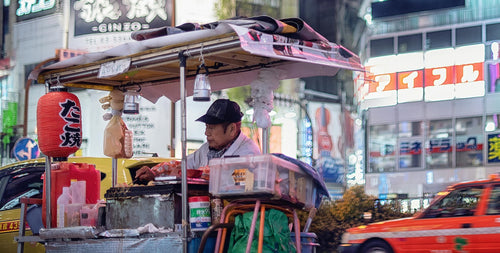
일본의 심야 음식 문화: 최고의 길거리 음식 8곳
일본의 심야 음식 문화는 활기찬 경험이며, 특히 도쿄와 오사카와 같은 번화한 도시에서는 맛있는 길거리 음식 노점과 캐주얼한 식당에서 밤늦게까지 독특한 맛을 제공합니다. 짭짤한 라멘에서 지글지글 꼬치에 이르기까...
-

도쿄의 멋진 전망을 감상할 수 있는 7곳의 옥상 바
도쿄의 옥상 바는 음료, 분위기, 그리고 종종 잊을 수 없는 일몰 전망을 즐기면서 도시의 스카이라인을 만끽할 수 있는 최고의 방법을 제공합니다. 번화한 신주쿠 지구를 내려다보는 고급 호텔 라운지부터 도쿄 타워...
-

춤과 음악 애호가를 위한 도쿄 최고의 나이트클럽 10곳
도쿄의 나이트라이프는 다양성과 에너지로 유명하며, 에너지 넘치는 댄스 플로어부터 전용 VIP 라운지까지 다양한 나이트클럽이 있습니다. 테크노에서 힙합, J-팝까지 다양한 음악을 제공하는 도쿄의 클럽은 모든 유형...
-

도쿄에서 꼭 방문해야 할 테마 바 및 카페 8곳
도쿄는 창의적이고 독특한 테마의 바와 카페로 유명하며, 지역 주민과 여행객 모두에게 몰입형 경험을 제공합니다. 사랑받는 애니메이션 캐릭터에서 영감을 받은 카페부터 정교한 장식이 있는 바까지, 이러한 장소는 잊을...
-

도쿄 나이트라이프 가이드: 신주쿠, 시부야, 롯폰기 하이라이트
도쿄의 나이트라이프는 전설적이며, 신주쿠, 시부야, 롯폰기 등 가장 상징적인 지구에서 활기찬 에너지, 엔터테인먼트, 독특한 경험을 제공합니다. 네온 불빛이 가득한 번화한 거리부터 숨겨진 바, 활기찬 클럽, 노래...
-
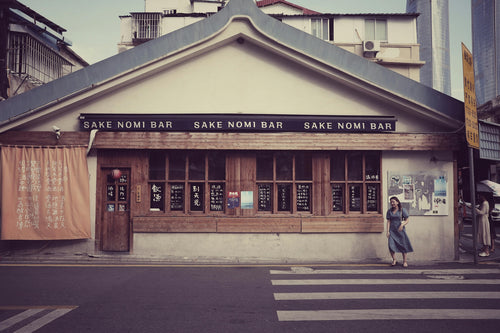
도쿄 최고의 일본 사케 바 7곳
도쿄에는 일본 최고의 사케 바가 몇 군데 있으며, 지역 주민과 방문객 모두에게 일본 사케의 풍부한 맛과 전통을 탐험할 기회를 제공합니다. 희귀한 양조주를 전문으로 하는 작고 숨겨진 바에서 광범위한 사케 목록을...
-

도쿄의 경치 좋은 전망대 6곳
도쿄의 전망대는 도시의 가장 멋진 파노라마 전망을 제공하며, 방문객은 위에서 거대한 대도시를 볼 수 있는 기회를 얻습니다. 일몰을 보거나, 밤에 도쿄의 스카이라인을 감상하거나, 화창한 날에 후지산을 맑게 바라...
-
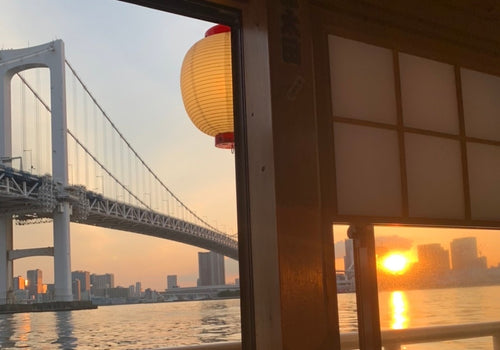
도쿄의 나이트 크루즈: 도시 전망을 즐기세요
도쿄의 스카이라인은 언제나 매혹적이지만, 야간 크루즈를 타고 물 위에서 경험하면 도시의 활력에 마법 같은 층이 더해집니다. 도쿄의 야간 크루즈는 도쿄 타워, 레인보우 브릿지, 미래적인 오다이바 지역과 같은 상징...
-
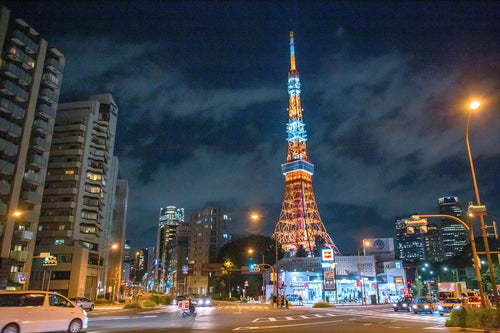
롯폰기 아트 앤 나이트라이프 가이드
롯폰기는 도쿄에서 가장 활기찬 지역 중 하나로, 활기찬 나이트라이프, 세련된 예술 장면, 다양한 다이닝 옵션으로 유명합니다. 도쿄 중심부에 위치한 롯폰기는 인기 있는 나이트라이프 명소에서 문화 허브로 진화했으...
-
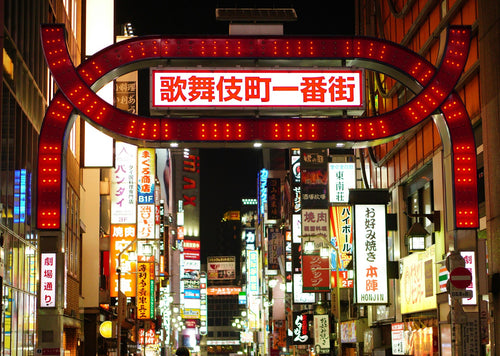
신주쿠 가부키초 밤문화 가이드
도쿄의 "잠들지 않는 도시"로 알려진 신주쿠의 가부키초 지구는 도쿄의 나이트라이프 중심지입니다. 네온 불빛이 빛나는 거리, 번화한 엔터테인먼트 장소, 활기찬 에너지로 유명한 가부키초는 잊지 못할 밤을 보내는 여...
-
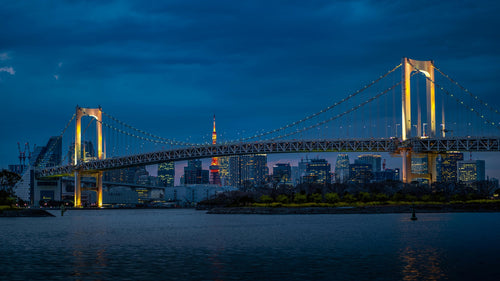
도쿄의 최고 야경 명소 6곳
밤의 도쿄는 숨 막힐 듯한 광경으로, 조명이 켜진 고층 빌딩, 상징적인 랜드마크, 활기찬 거리가 역동적인 야간 도시 풍경을 만들어냅니다. 지역 주민과 방문객 모두에게 도쿄는 도시의 활기찬 에너지를 보여주는 다...
-

시음과 투어를 위한 일본 최고의 사케 양조장 12곳
일본의 사케 문화는 그 깊이, 복잡성, 풍부한 역사로 전 세계적으로 찬사를 받고 있습니다. 사케 또는 니혼슈는 음료일 뿐만 아니라 지역 관습과 재료에 깊이 뿌리를 둔 일본의 장인 정신에 대한 증거입니다. 사케 ...
-
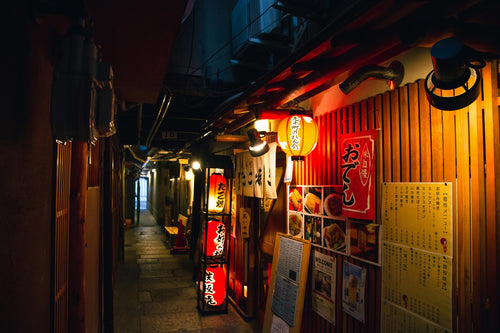
일본 이자카야에서 밤을 즐기는 방법
일본식 이자카야는 지역 주민들이 퇴근 후 모여 음료를 즐기고, 작은 접시를 나누고, 친구나 동료와 휴식을 취하는 캐주얼하고 활기찬 장소입니다. 술집이나 타파스 바와 비슷하게 이자카야는 환영하는 분위기와 다양한 ...
-

일본의 가라오케 문화 탐험: 노래하기 가장 좋은 8곳
가라오케는 일본 문화의 필수적인 부분으로, 친구, 가족, 심지어 직장 동료까지도 즐겁고 재미있게 휴식을 취할 수 있는 방법을 제공합니다. 일본에서 시작된 가라오케("빈 오케스트라"라는 뜻)는 모든 연령대와 배경...
-
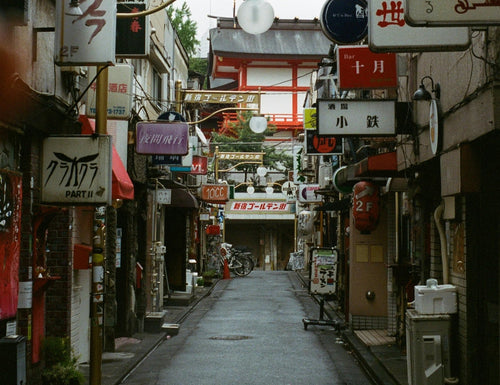
골든가이 추천 바 5곳
도쿄 신주쿠 지구 중심부에 자리 잡은 골든 가이는 이 도시에서 가장 상징적인 바 지구 중 하나입니다. 좁은 골목길과 작은 바로 유명한 이 지역은 도쿄의 과거를 엿볼 수 있는 분위기와 다른 어떤 것과도 비교할 수...
-
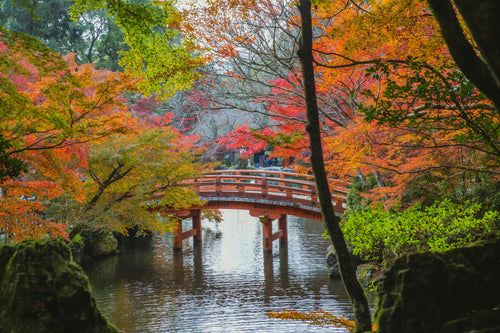
평온함을 위해 방문해야 할 일본 정원 10곳
일본 정원은 아름다움, 평온함, 자연과의 조화를 반영하는 복잡한 디자인으로 유명합니다. 이 정원은 바위, 물, 식물, 모래와 같은 자연적 요소를 결합하여 고요한 풍경을 만드는 신중하게 만들어진 공간입니다. 선...
-
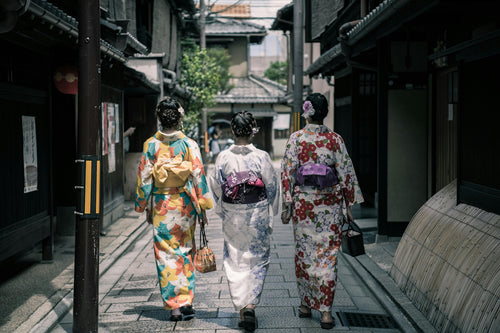
일본의 기모노 유산: 상징주의, 스타일, 그리고 볼 곳
일본의 전통 의상인 기모노는 일본 문화를 아름답고 상징적으로 표현한 것입니다. 복잡한 패턴과 색상부터 착용 방식까지 기모노는 수세기의 역사, 전통, 예술성을 구현합니다. 원래는 남성과 여성의 일상복이었던 기모노...
-
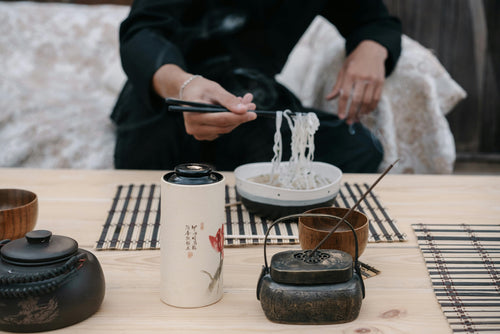
일본 방문객을 위한 에티켓 필수사항
일본의 문화는 존중, 예의, 배려가 풍부하여 에티켓이 일상 생활의 필수적인 부분이 되었습니다. 방문객의 경우 일본의 관습과 에티켓을 이해하면 여행 경험을 향상시키고 국가의 문화적 가치에 대한 감사를 표현할 수...
-

일본 사무라이 역사를 발견할 수 있는 최고의 장소 7곳
일본의 사무라이 역사는 명예, 기술, 깊은 문화적 영향으로, 수세기를 거슬러 올라가며 국가의 정체성에 지울 수 없는 흔적을 남겼습니다. 고대 성과 사무라이 거주지부터 갑옷과 칼로 가득 찬 박물관까지, 일본은 방...
-
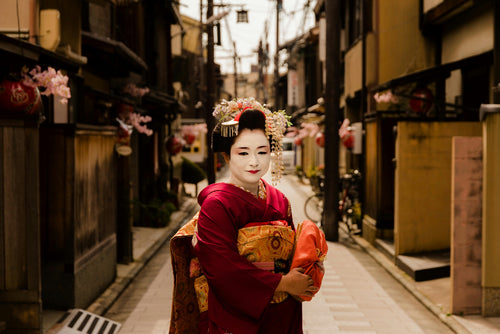
일본의 게이샤 문화: 신화와 현실
게이샤의 세계, 일본의 숙련된 공연자이자 전통 예술의 수호자는 오랫동안 전 세계 사람들의 관심을 끌었습니다. 우아함, 세련된 아름다움, 전통적인 일본 음악, 춤, 대화에 대한 능숙함으로 유명한 게이샤는 일본 문...
-
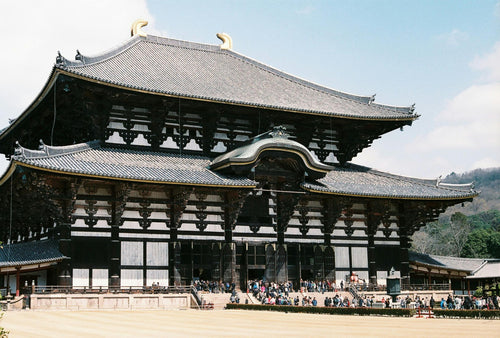
일본의 독특한 건축: 전통과 현대의 랜드마크 8선
일본은 고대 건축 유산과 최첨단 현대 디자인의 독특한 혼합으로 유명합니다. 수세기 된 사원과 성에서 현대적인 고층 빌딩과 혁신적인 공공 공간에 이르기까지 일본 건축은 전통에 대한 국가의 깊은 존경과 미래 지향...
-
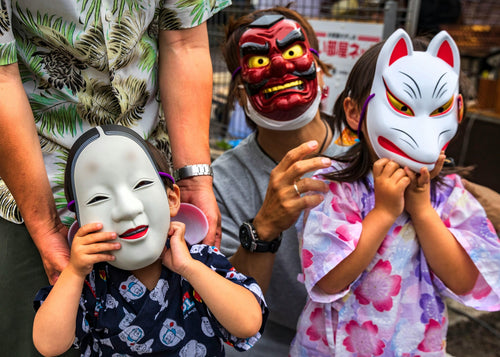
놓칠 수 없는 10가지 전통 일본 축제(마츠리)
일본의 축제 또는 *마츠리*는 정교한 의상, 활기찬 퍼레이드, 고대 의식을 특징으로 하는 문화 유산을 기념하는 활기찬 행사입니다. 웅장한 도시 행사에서 친밀한 시골 모임에 이르기까지 각 축제는 독특하며 지역 전...
-

일본의 3대 온천: 유명 온천 가이드
일본은 천연 온천 또는 *온센* (温泉)으로 유명하며, 방문객에게 아름다운 풍경 속에서 미네랄이 풍부한 물에서 휴식을 취하고 활력을 되찾을 수 있는 독특한 기회를 제공합니다. 전국에 있는 수천 개의 온천 중 세...
-

일본 미술 탐험: 일본에서 미술을 즐길 수 있는 최고의 장소
일본은 수세기 된 전통 공예부터 현대적이고 혁신적인 설치물까지 예술적 유산이 풍부한 나라입니다. 고대 잉크 그림, 에도 시대 목판화 또는 현대 디지털 아트에 매료되든, 일본은 모든 형태의 예술을 경험할 수 있...
-

일본 불꽃놀이 축제 가이드: 언제, 어디로 가야 할까
"하나비 타이카이"(花火大会)로 알려진 일본의 여름 불꽃놀이 축제는 전국에서 가장 기대되는 이벤트 중 하나로, 눈부신 색상과 빛의 디스플레이를 보기 위해 많은 군중을 끌어들입니다. 수세기 된 전통에 뿌리를 둔 ...
-
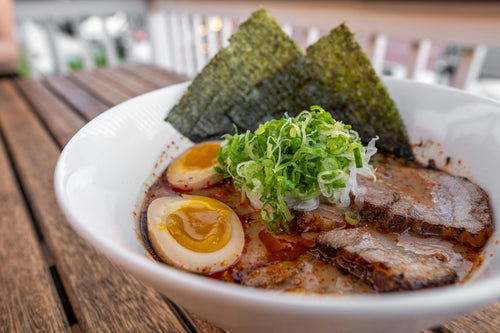
일본에서 라면 만들기 수업을 경험할 수 있는 곳
라멘은 일본에서 가장 사랑받는 요리 중 하나로, 전 세계의 미식가들을 사로잡는 수많은 지역적 스타일과 풍미가 있습니다. 후쿠오카의 진하고 크리미한 돈코츠부터 홋카이도의 가볍고 짭짤한 시오까지, 라멘의 종류는 방...
-
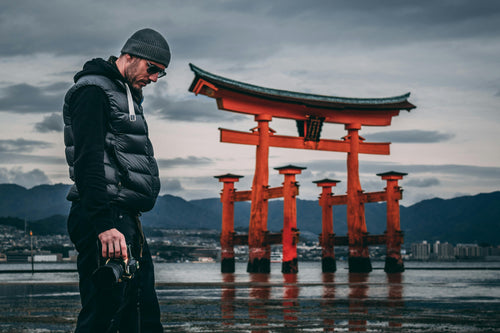
파워 스팟 투어: 일본의 유명한 사원과 신사
일본은 영적인 역사가 깃든 땅이며, 사찰과 신사를 방문하면 과거를 엿볼 수 있을 뿐만 아니라 이 나라의 강력한 에너지 스팟 또는 "파워 스팟"과 연결될 기회도 있습니다. 영적 에너지를 발산한다고 믿어지는 이 ...
-
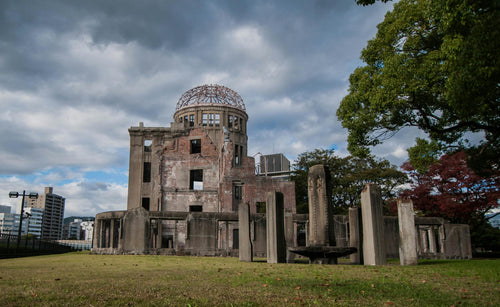
일본 유네스코 세계문화유산 투어 가이드
일본에는 수많은 유네스코 세계문화유산이 있으며, 각각은 일본의 풍부한 문화유산과 자연의 아름다움을 엿볼 수 있는 곳입니다. 고대 사원과 역사적인 성에서 경치 좋은 풍경에 이르기까지 이러한 유적지는 일본의 역사...
-
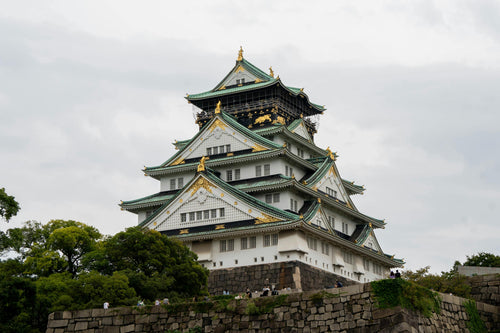
5개의 유명한 일본 성: 역사와 하이라이트
일본에는 세계에서 가장 아름답고 역사적으로 중요한 성들이 있습니다. 봉건 시대에 지어진 이 성들은 요새, 거주지, 권력의 상징으로 사용되었습니다. 오늘날, 이 성들은 문화적 보물로, 방문객에게 일본의 풍부한 ...
-
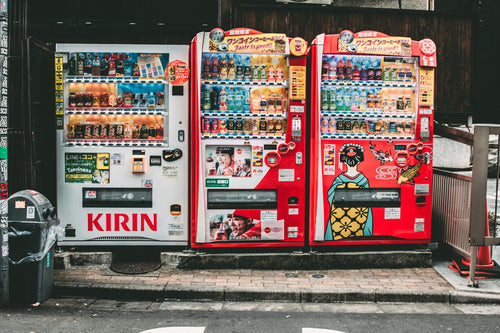
일본 자판기에서 맛볼 수 있는 독특한 음료 10가지
일본은 자동판매기로 유명하며, 청량음료와 생수 그 이상의 놀라운 다양한 음료를 제공합니다. 독특한 맛에서 혁신적인 음료까지, 일본의 자동판매기는 방문객과 지역 주민 모두에게 많은 놀라움을 선사합니다. 이 가이드...
-
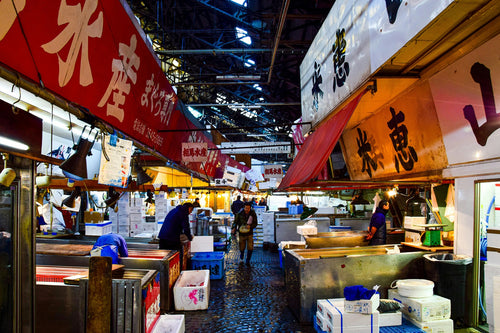
도쿄 시장 가이드: 쓰키지와 도요스 시장 탐험
도쿄의 쓰키지와 도요스 시장은 미식가와 일본의 풍부한 요리 문화에 관심이 있는 사람이라면 꼭 방문해야 할 곳입니다. 두 시장 모두 방문객에게 일본 해산물 산업의 심장부를 엿볼 수 있는 기회를 제공하며, 신선한...
-
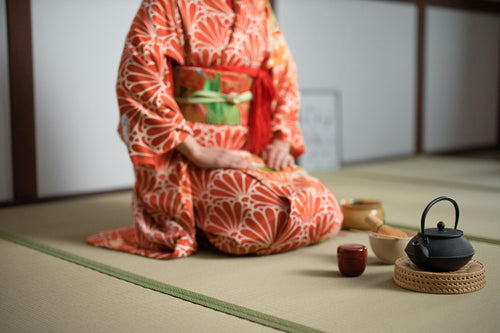
도쿄에서 전통 다도 체험
일본의 다도, 또는 "차노유"는 전통, 미학, 마음챙김에 뿌리를 둔 문화적 경험입니다. 도쿄에는 수많은 다실과 문화 센터가 방문객에게 이 우아한 의식에 푹 빠질 수 있는 기회를 제공합니다. 전통적인 다도를 경...
-
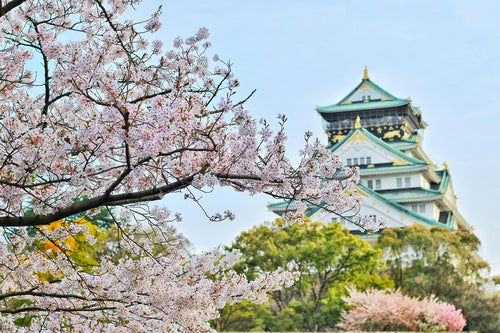
도쿄의 벚꽃구경 명소 7곳
도쿄의 봄은 벚꽃 시즌과 동의어입니다. 이 계절에는 도시의 공원, 강변, 정원이 분홍색과 흰색으로 물듭니다. 벚꽃 또는 "사쿠라"는 일본 문화에서 특별한 자리를 차지하며, 갱신과 삶의 덧없음을 상징합니다. 지역...
-

온천이란 무엇인가? 역사, 혜택, 예절에 대한 가이드
일본의 소중한 온천 문화인 온천은 휴식, 아름다운 경치, 뿌리 깊은 전통이 독특하게 조화를 이룹니다. 치료 효과가 있는 미네랄이 풍부한 물, 고요한 산 환경, 문화적으로 중요한 의식으로 유명한 온천은 방문객에게...
-

사케란 무엇인가? 생산 방식과 역사
사케는 발효된 쌀로 만든 전통적인 일본 알코올 음료입니다. 일본에서는 천 년 이상 즐겨 왔으며 독특한 풍미와 문화적 중요성으로 인해 전 세계적으로 인기를 얻었습니다. 이 글에서는 사케가 무엇이고, 어떻게 만들...
-

도쿄 근교의 아름다운 풍경을 자랑하는 온천 8곳
도쿄는 번화한 대도시이지만, 도시 바로 외곽에는 일본에서 가장 고요한 온천이나 온센이 있어 숨 막힐 듯한 경치와 자연 속에서 휴식을 취할 수 있는 기회를 제공합니다. 무성한 숲, 해안 또는 산악 지대에서 이러한...
-

도쿄에서 방문할 수 있는 최고의 박물관 10곳
도쿄에는 예술과 역사부터 기술과 대중 문화까지 모든 관심사를 충족하는 다양한 박물관이 있습니다. 전통 일본 예술을 탐험하거나 최신 디지털 혁신을 경험하는 데 관심이 있든, 도쿄의 박물관은 모든 연령대의 방문객...
-
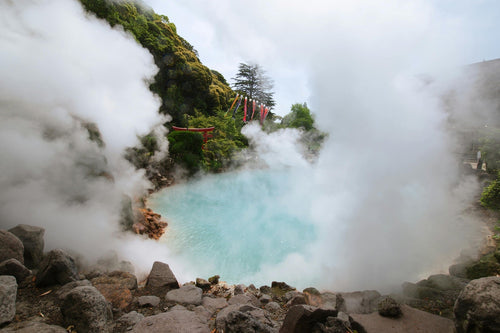
도쿄 최고의 온천과 목욕탕 9곳
도쿄는 활기찬 도시적 에너지로 유명하지만, 온천(온센)과 전통 목욕탕(센토)에서 휴식을 취하고 활력을 되찾을 수 있는 환상적인 장소이기도 합니다. 이러한 공간은 웰빙과 휴식을 중심으로 하는 일본의 목욕 문화를 ...
-
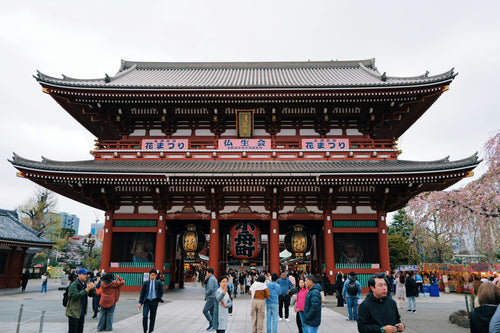
도쿄 근처에서 방문할 수 있는 유명한 사원과 신사 15곳
도쿄와 그 주변 지역에는 일본의 풍부한 영적, 문화적 유산을 보여주는 많은 유명한 사찰과 신사가 있습니다. 종종 고요한 환경에 자리 잡은 이 신성한 장소는 번잡한 도시에서 평화로운 휴식을 제공합니다. 건축적 아...










































